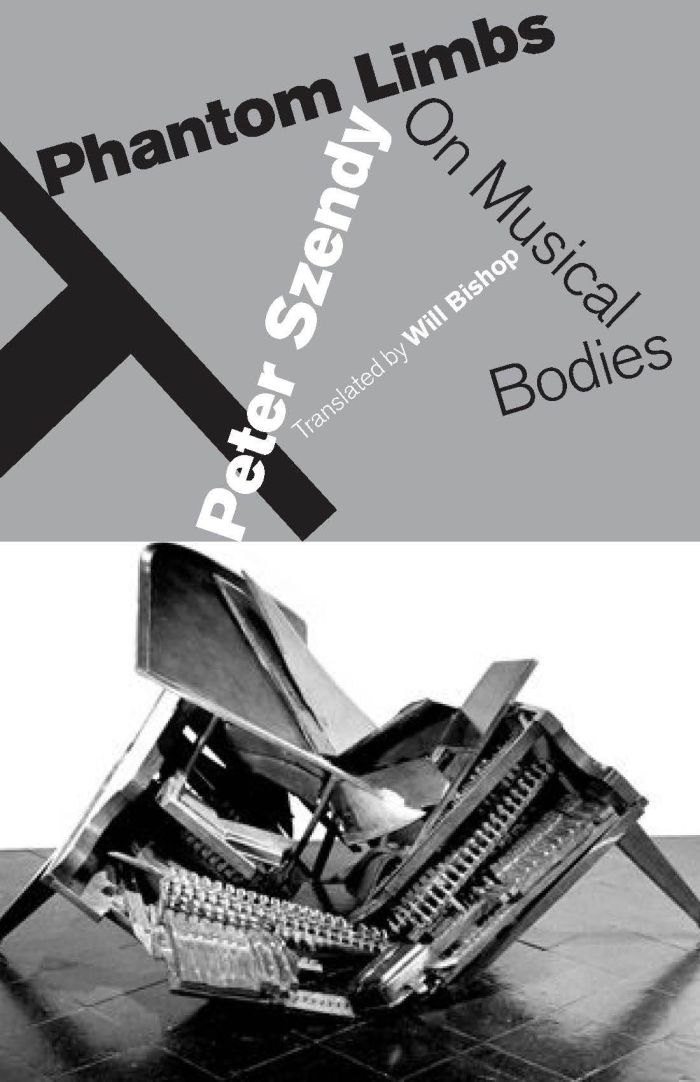Phantom Limbs
On Musical Bodies

This book can be opened with

The prostheses Peter Szendy explores—those peculiar artifacts known as musical instruments—are not only technical devices but also bodies that live a strange phantom life, as uncanny as a sixth finger or a third lung.
The musicological impulse to inventory those bodies that produce sound is called into question here. In Szendy’s hands, its respectable corpus of scholarship is read aslant, so as to tease out what it usually prefers to hide: hybrids and grafts produced by active fictions, monsters, and chimera awaiting the opportunity to be embodied. Beyond these singular bodies that music composes and disposes there lies the figure of a collective “social” body ready to emerge amid an innervated apparatus that operates at a distance, telepathically.
Phantom Limbs touches on bodies of all shapes and sizes that haunt the edges of music’s conceptualizations. Music continually reinvents such bodies and reconvenes them in new collective formations. It is their dynamics and crystallizations that Szendy auscultates on a motley corpus that includes Bach, Diderot, Berlioz, Eisenstein, Disney, and Monk.
“A patient meditation on the musical body. Szendy provides a stunning reading of
the digital history of the finger, or ‘digit.’ We witness the multiplication of digits, the multiplication of hands and fingers, the regulation of bodies in the hope of having as many fingers as we need to play on the keyboard. But there is more to musical bodies; there are the virtual bodies of instruments who would play without contact of touch, repeating the motion of music that touches us through the ether, and there is the body of a conductor, who governs the body politic that is the orchestra. This is a compelling study.”
The first truly comprehensive critique of organology—the study of musical instruments as related to the human body. A smart, lucid and original study, translated superbly by Will Bishop.
“A very original discussion of the production of the body through music. Szendy takes up a variety of musical practices in their fascinating and little-known history.”

